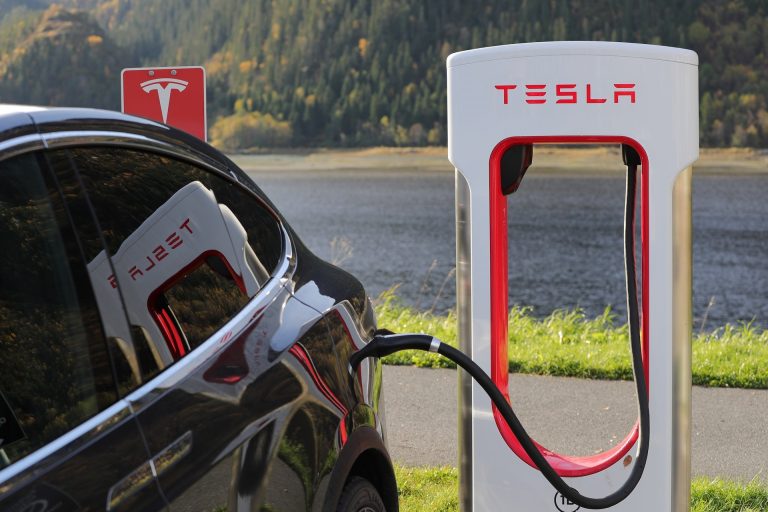Tesla has begun offering a “Full Self-Driving” (FSD) autopilot drive assistance system as a monthly subscription service to its users. The system claims to assist drivers with the “most burdensome parts” of driving like “steering, accelerating and braking for other vehicles and pedestrians within its lane.” It works alongside other features of Tesla cars like collision warning, emergency braking, and blind-spot monitoring.
The FSD feature is available on vehicles that have the FSD computer 3.0 (or above) together with the Basic Autopilot or Enhanced Autopilot installed. Tesla owners who do not have these configurations will need to purchase a $1,500 worth hardware upgrade to make their vehicles FSD-ready. At present, the FSD features are only available to “eligible vehicles in the United States.”
FSD autopilot offers features like Traffic-Aware Cruise Control, Autosteer, Auto Lane Change, Navigate on Autopilot, Summon, Autopark, Smart Summon, and Traffic and Stop Sign Control.
Although Tesla is marketing the service as “Full Self-Driving,” it is not actually fully autonomous. The company itself admits that a human overview is required when the system takes over control of the vehicle.
“These features are designed to become more capable over time; however the currently enabled features do not make the vehicle autonomous. The currently enabled features require a fully attentive driver, who has their hands on the wheel and is prepared to take over at any moment,” from the company website.
Success
You are now signed up for our newsletter
Success
Check your email to complete sign up
Users can get an “Enhanced Autopilot to FSD capability” service at a monthly fee of $99 or a “Basic Autopilot to FSD capability” at $199 per month. Users can also buy the FSD service outright for $10,000.
Tesla seeking a source of recurring revenue
During the company’s first-quarter earnings call in April, CFO Zachary Kirkhorn had pointed out that the subscription service would generate recurring revenue for the company.
“If you look at the size of our fleet and you look at the number of customers who did not purchase FSD up front or on a lease and maybe want to experiment with FSD, this is a great option for them… As the portfolio of subscription customers builds up, then that becomes a pretty strong business for us over time,” Kirkhorn stated.
According to vehicle automation standards set by SAE International, a professional association and standards developing organization for engineers, Tesla is only a Level-2 vehicle.
“SAE Level 1 and 2 driving automation systems have been given the name ‘Driver Support Systems’ as a counterpart to the term ‘Automated Driving Systems’ used for SAE Levels 3-5,” the organization’s standards state. SAE warns users of Level-2 vehicles that they must “constantly supervise” the automation features and that they should steer, brake, or accelerate “as needed to maintain safety.”
In fall 2020, Consumer Reports tested Tesla’s FSD driving capabilities. It found that the Autopark feature would make errors in recognizing parking spaces and often made mistakes when it came to positioning straight between parking lines.
The Smart Summon feature, which enables the car to be driven remotely to a location in a parking lot, was found to drive the vehicle over to the wrong side. It also failed at halting the vehicle at stop signs.
The Navigate on Autopilot features had several issues as well. “We found the performance to be inconsistent, with the system sometimes ignoring exit ramps on the set route, driving in the carpool lane, and staying in the passing lane for long periods of time. The feature also would completely disengage at times for no apparent reason,” the review states.
‘Morally dubious, technologically limited, potentially dangerous’
An analysis of Tesla’s FSD system at Men’s Health called it “morally dubious, technologically limited, and potentially dangerous.” The analysis looked at a 13-minute YouTube video of a Tesla 3 vehicle being driven around in Oakland using FSD.
In the video, the FSD makes a host of errors including taking a right turn when it is prohibited, randomly stopping in the middle of the road, driving into the oncoming lane, near collisions, and so on.
Tesla has chosen “to sell software it knows is incomplete, charging a substantial premium, and hoping that those who buy it have the nuanced, advanced understanding of its limitations—and the ability and responsibility to jump in and save it when it inevitably gets baffled. In short, every Tesla owner who purchases ‘Full Self-Driving’ is serving as an unpaid safety supervisor, conducting research on Tesla’s behalf,” says the article.
A July 5 report by The New York Times talks about a Californian family that is suing Tesla after their car was hit by a Model 3 which was speeding at 60 miles per hour on autopilot. The victim of the crash, Benjamin Maldonado and his 15-year-old son Jovani, were driving back from a soccer tournament. Maldonado survived the crash. However, his son was not wearing a seatbelt and later succumbed to his injuries.
A six-second video captured by Tesla showed that the autopilot had not slowed down the vehicle until a fraction of a second prior to the crash. Maldonado and his wife have filed a lawsuit against Tesla at the Alameda County Superior Court, accusing the autopilot of being defective and failing to react to traffic conditions.
“We are living day by day… There is so much sadness inside. We take family walks and try to do things together like going to church. There is a massive hole in the family,” Maldonado said.
Tesla faces several similar lawsuits. One case filed in April concerns a crash that took place in 2019 when a Tesla Model S on autopilot failed to stop at a T intersection and ended up crashing into a vehicle and killing a person. Another lawsuit filed in May involves a plaintiff who has suffered spinal injuries due to a Tesla car, under autopilot, crashing into his van.














